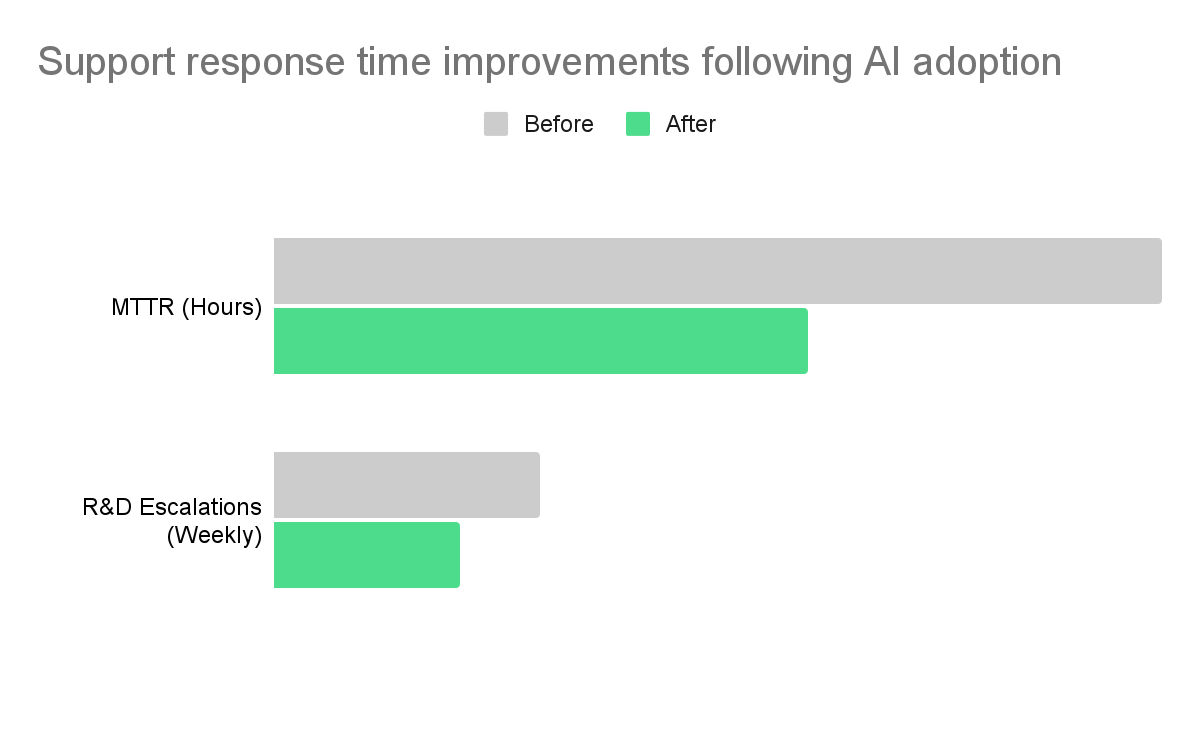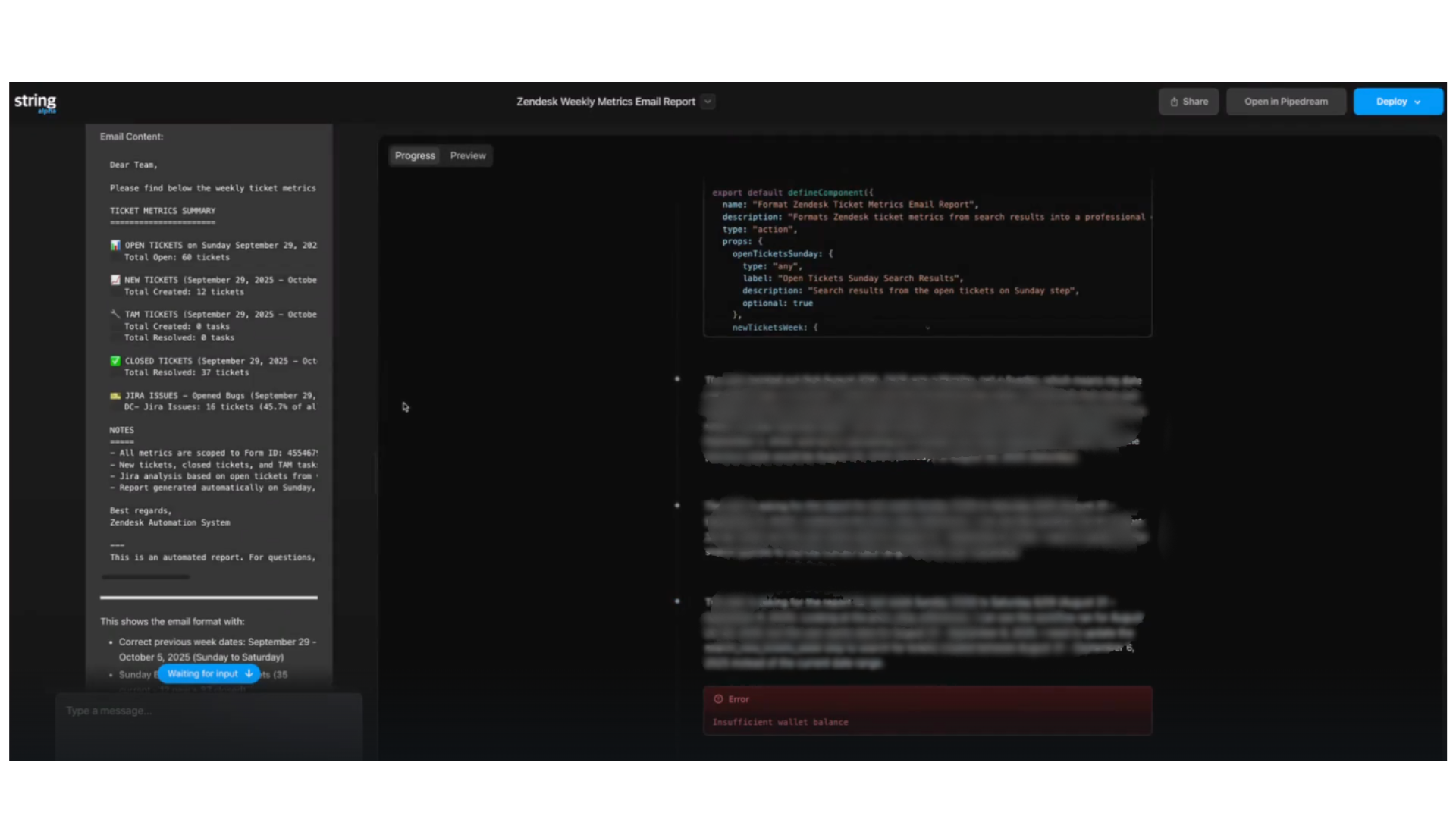
A few days ago, my team had a call with one of our clients to troubleshoot an issue. Despite our best efforts, we weren’t able to fully resolve the issue during the call. My team apologized profusely, and braced for a negative reaction.
Instead, the client responded: “No worries, I’d rather speak with you than with an AI agent that I’m not sure could even solve my issue.”
This interaction highlights something important: when a client has a complex issue, they want to speak with a human.
But, the benefits of using AI are not lost - rather, it is now in the hands of the support person, and AI can be leveraged as a superpower.
AI is a superpower because it unlocks a new level of independence. We want our Support and TAM teams to be able to resolve the vast majority of issues on their own, with a target of resolving 70% of the tickets without escalating to the R&D teams.
Given that our team doesn't code, this was once a major barrier we faced. Now, AI removes that barrier, providing our team with technical abilities we once did not have.
This is a core part of our current evolution at DoControl: AI is enabling us to scale our operations without sacrificing the speed and personal touch our clients value.
1. Enhancing Communication Between Us & Our Customer
The first and most easily adoptable use case of AI within our Support and Customer Success teams is using AI to produce faster and better responses to our clients.
We use AI to draft or refine our replies to clients to ensure a consistent, professional, and empathetic tone that aligns with DoControl’s brand voice and the message we want to convey.
It assists us by simplifying complex technical information into clear, easy-to-understand language, and correcting grammar as we work within international teams using multiple different dialects.
This use case helps our team communicate more effectively and efficiently, leading to faster resolution times and a significantly improved customer experience.
2. Solving Issues with Deeper Technical Insight & Accuracy
One of the most significant improvements after leveraging AI into our day-to-day is our ability to troubleshoot issues on a much deeper technical level.
For example, problems related to our workflow's JSON queries (JSONata), which previously required immediate escalation to R&D, are now routinely analyzed and resolved within the support team.
Beyond just identifying and fixing issues, our AI tools also provide a wider perspective on potential solutions, helping us suggest more creative and effective resolutions for our clients.
The results speak for themselves. Our Mean Time to Resolution (MTTR) has dropped by 40%, and we’ve reduced the number of issues escalated to the R&D teams by 15%.

3. Building Internal Tools & Automations That Accelerate Productivity
The third way (and the true game-changer unlocked by AI) is the ability for our team to build its own internal tools and automations in minimal time.
For instance, we recently created an automation in Pipedream that intelligently organizes our Zendesk queue, helping us prioritize tickets according to our guidelines.
This tool saves the team approximately five hours of manual work every single week. But the most impressive part isn't the time saved, it's that our own team built and deployed this tool, end-to-end, in less than two days. All without writing a single line of code.

A year ago, a project like this would have taken too much time and too much effort to be prioritized. Now, we can solve our own problems. That freedom - to build, fix, and save time for clients - is our superpower.
Seeing these results has our team's imaginations running wild. We're now asking bigger questions, exploring how we can leverage AI to transform everyday processes like renewals and client onboarding. AI is putting the power to improve many aspects of the client experience directly into our hands.
Every hour saved on routine tasks is an hour we can reinvest in our clients. This newfound capacity allows us to double down on what humans do best: connecting with clients, navigating their most complex challenges, acting as strategic partners, and helping take DoControl to the next level.



